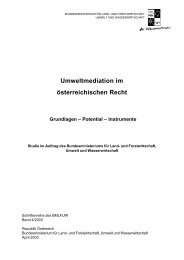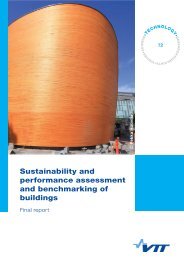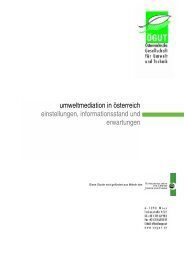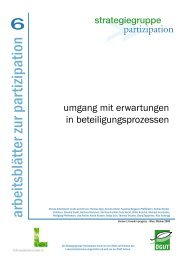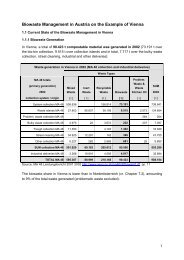Reflection sheet (pdf-file, 701 KB) - Partizipation
Reflection sheet (pdf-file, 701 KB) - Partizipation
Reflection sheet (pdf-file, 701 KB) - Partizipation
You also want an ePaper? Increase the reach of your titles
YUMPU automatically turns print PDFs into web optimized ePapers that Google loves.
Bring outside experts in<br />
Along with their local knowledge, those involved in a participation process<br />
bring in a wide range of ideas about and perspectives on the topic in question.<br />
Quite apart from the aspect of deepening democracy, this is a further<br />
advantage of participation. Going a step further, it may well be necessary or<br />
sensible to bring in outside experts to cover issues arising in a project that are<br />
relevant to sustainability, but would otherwise be neglected in the participation<br />
process. Their task is to ensure that the specialized knowledge on hand<br />
is taken into account and professional standards are complied with. Bringing<br />
experts in can help with covering the first two points mentioned (experts can<br />
put things into context, draw attention to relevant statutory and other provisions,<br />
and also assist with carrying out sustainability checks).<br />
2. Make sure that the participants reflect the range of interests actually on<br />
hand<br />
Selecting the participants<br />
For ecological, social and economic aspects to be represented fairly, it is essential<br />
to take the greatest care in selecting the common-interest groups and<br />
their representatives – who must be involved if a high-quality, lasting result is<br />
to be achieved – at the planning stage.<br />
When participation processes are being planned, care should be taken not to<br />
put low-income common-interest groups at a disadvantage, e.g. by requiring<br />
participants to invest a lot of time/work, or by necessitating substantial expenses<br />
for travel or accommodation.<br />
The interests of future generations and the global perspective can be brought<br />
into the process by specially selected proxies, who act as advocates of these<br />
special interests.<br />
Ensure fairness by means of the process design and the way it is chaired<br />
Apart from selecting the right participants, it is important to ensure during the<br />
process that all the various common-interest groups can express their points<br />
of view and make their presence felt. Existing discrepancies in power and<br />
influence, say between individuals or the representatives of powerless and<br />
powerful common-interest groups, can be evened out, e.g.<br />
• by means of the process design: for instance, , when the participants are<br />
being selected the ability of the various organizations to get their way can<br />
be taken into account, or the amount of work required can be matched to<br />
the resources of the groups taking part,<br />
sustainability and participation<br />
How does sustainability get into participation processes?<br />
4





